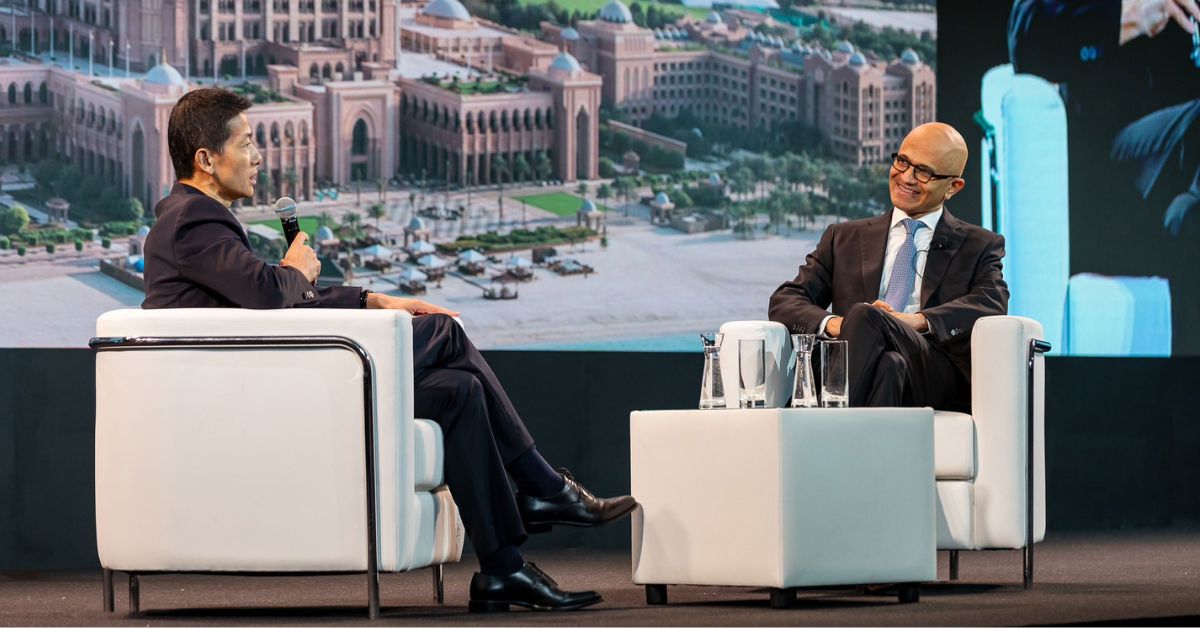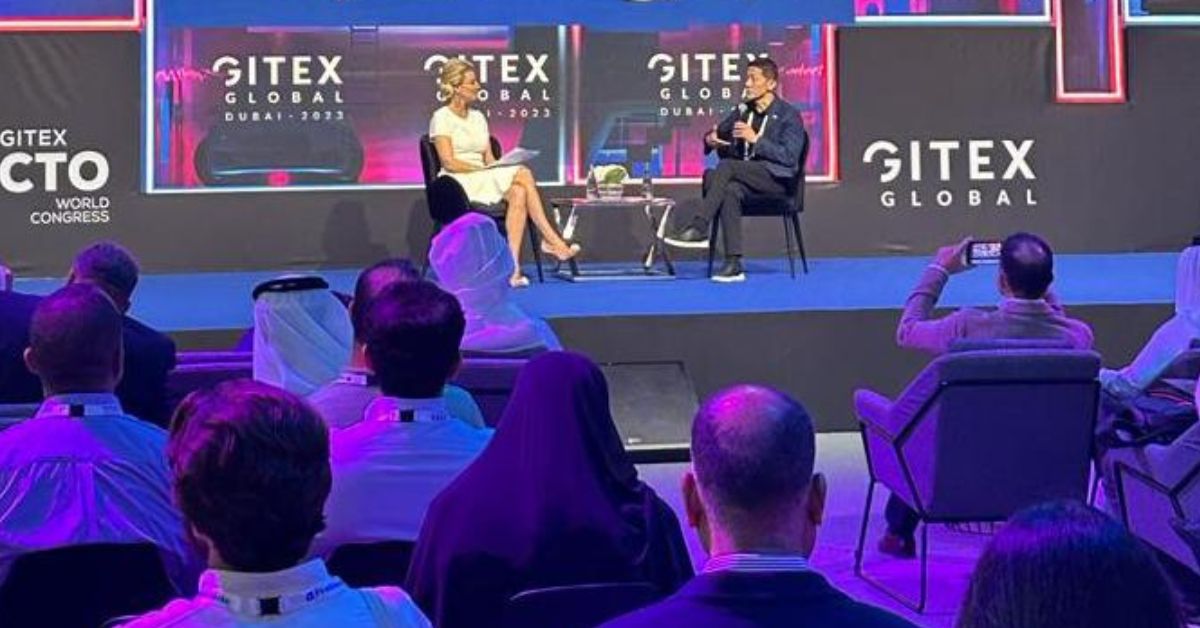DUBAI, UAE — Cold wars have their consequences, albeit not as devastating as actual conflicts like those in Ukraine and Gaza. The GCC is currently navigating its own digital battlegrounds, where companies and governments face increasing pressure to balance supporting their national security systems with establishing a robust, digitally-enabled future.
A recent example of the geopolitical struggle for economic dominance is the Gulf AI company, G42, severing ties with Chinese hardware supplier Huawei in favor of U.S. counterparts. In August 2023, G42 launched Jais, promoted as the most advanced Arabic AI software, designed to power generative AI applications in collaboration with OpenAI. Jais was trained and fine-tuned by a joint team from Inception and MBZUAI on the Condor Galaxy 1 (CG-1), a cutting-edge AI supercomputer co-developed by G42 and the U.S. AI company Cerebras Systems.
G42 shifted its alliances away from China to comply with Washington’s regulations on the export of advanced microchips, following concerns raised by U.S. national security experts about potential espionage risks from Chinese firms.
At A Glance GCC's Digital Battlegrounds: Companies and governments face the challenge of balancing national security with a digitally-enabled future. G42 and Huawei: Gulf AI company G42 has cut its ties with Huawei, aligning with U.S. counterparts, and launched Jais, a cutting-edge Arabic AI software. Semiconductor War: U.S. bans sales of advanced semiconductor chips to China, affecting global tech dynamics. GCC's Geopolitical Dilemma: The region is struggling between aligning with U.S. or China for security, political, and economic partnerships. AI and Chip Technology in GCC: The U.S. limits AI-training chip access to China, affecting GCC strategies and investments. Saudi Arabia's Tech Advancements: The Kingdom purchases Nvidia's H100 chips and invests in AI technology. China-GCC Trade Relations: China remains a key partner of the region in infrastructure, energy, and technology. UAE-China Economic Growth: There is a significant increase in trade and collaboration, despite geopolitical tensions. BRICS Involvement of Saudi Arabia and UAE: It indicates a shift in global power dynamics and economic strategies. GCC Balancing Act: The region is navigating US-China tech war while strengthening ties with ASEAN to diversify economic partnerships. International Companies’ Strategic Positioning: Ericsson, BGI Genomics, and Babylon Health have already adapted to geopolitical shifts in the region.
In what can be described as a full-scale semiconductor war, the U.S. imposed a ban in October 2022 on the sale of all advanced semiconductor chips and equipment to Chinese companies, citing national security reasons. Semiconductors account for about 25 percent of electronic equipment sales vital for powering new technologies, with Taiwan responsible for over half of the global production.
The Middle East Institute, a think tank, notes that GCC states are grappling with the tough decision of prioritizing their security, political, and economic partnerships with the U.S., or aligning their economic and technological interests with China.
The U.S., a major contender in the global race to advance AI, aims to limit China’s access to AI-training chips. This strategy is impacting the GCC as well. The U.S. Department of Commerce has expanded export license requirements for AMD’s MI300 chips and Nvidia’s A100 and H100 chips, which are highly regarded for their prowess in machine learning and the development of large language models, thanks to their accelerated neural network training capabilities.
Recently, Saudi Arabia purchased at least 3,000 of Nvidia’s H100 chips, valued at around $120 million, through the King Abdullah University of Science and Technology (KAUST). The UAE has also significantly invested in Nvidia chips and earlier this year launched Falcon, an open-source AI model that trained on 384 A100 chips.
China and the GCC: Strengthening ties
Over the past two decades, China has become a crucial partner with the GCC in infrastructure investment, energy trade, and digital technology.
In 2022, Saudi Arabia exported a total of 87.49 million tons of crude to China, mirroring its 2021 figures when it supplied 17 percent of China’s oil imports.
Qatar was China’s second-largest LNG supplier in 2022, delivering 18 million tons, or nearly 27 percent of China’s LNG imports.
The trade value between China and the GCC countries reached $316 billion in 2022, while the volume of trade exchange with Arab countries hit $430 billion. President Xi Jinping’s visit to Saudi Arabia in 2022 resulted in deal announcements worth $50 billion. By October 2023, Chinese investments in Saudi ACWA power generation projects exceeded $10 billion.
Saudi Arabia’s Public Investment Fund (PIF) and China’s Hon Hai Precision Industry Company (Foxconn) commenced the co-development of an electric vehicle (EV) brand in Saudi called CEER in 2023. This move is seen as competition to an assembly plant with U.S. EV carmaker Lucid.
On June 11, 2023, the first day of the 10th Arab-China Business Conference in Riyadh, Saudi’s Ministry of Investment signed investment agreements with Chinese companies worth $10 billion.
In March 2023, Saudi Aramco agreed to acquire a 10 percent interest in Chinese producer Rongsheng Petrochemical for $3.6 billion. Additionally, it is constructing a 300,000 bpd refining complex in China’s Panjin City.
In September 2023, Huawei announced plans to open a cloud data center in Riyadh and invest $400 million in Saudi chip technology.
In June 2023, Saudi Arabia’s KAUST entered an agreement with two Chinese firms to establish a microchip design and manufacturing center, aiming to advance smart grids and cities. Jasem Mohamed Albudaiwi, Secretary General of the Gulf Cooperation Council (GCC), in October 2023, described the GCC-China relationship as unique, ideal, diverse, and interconnected across many fields. The two sides are currently reviewing a free trade agreement that would eliminate trade restrictions and customs tariffs.
Non-oil trade between GCC and China
The GCC’s rapid pivot to Asia has eclipsed the Gulf’s traditional economic partnerships. Trade between Gulf nations and Asia surged by nearly 35 percent from 2021 to 2022, outpacing the 32 percent growth with the U.S., U.K., and Western Europe. China, a central figure in this pivot, has seen its trade with the Gulf increase by about 50 percent over the last decade. The UAE-China trade relationship, in particular, has grown significantly, jumping approximately 37 percent from $78 billion in 2021 to $107 billion in 2022.
Power dynamics
While U.S. economic and political influence often determines the actions of GCC companies and governments, as exemplified by G42’s case, the GCC and Asia continue to forge close collaborations. These partnerships, driven by synergy, proximity, and possibly as a counter to U.S. hegemony, are reshaping regional dynamics. Huawei’s decision on September 4, 2023, to open a cloud data center in Riyadh followed the U.S.’s export restrictions on AI chips to the Middle East.
Saudi Arabia and the UAE’s recent entry into the BRICS group signifies this shift in international power dynamics. The UAE has already joined the group’s New Development Bank, seen as a potential rival to the World Bank. Saudi Arabia is expected to join soon, both nations aiming to increase their influence in global economic affairs.
Outside of a potential unified BRICS currency, China’s Renminbi (RMB) is being promoted as a global trade currency. Its use in trade settlement now accounts for about 6 percent of global trade, surpassing the Euro. In April 2023, the Abu Dhabi National Oil Company (ADNOC) completed the Gulf’s first cross-border RMB-settled LNG trade with China.

However, GCC states are adept at navigating both sides of the geopolitical landscape. The Association of Southeast Asian Nations (ASEAN), a political and economic union of 10 Southeast Asian states representing over 600 million people, met in Riyadh on October 20, 2023. This meeting, part of the “Asia minus China” strategy, aimed to boost trade relations outside of China to mitigate political risks stemming from the U.S.-China standoff.
The combined gross domestic product of the GCC and ASEAN is approximately $6 trillion. Exports from the GCC to ASEAN account for 9 percent of the Gulf’s total exports, while imports from ASEAN constitute 6 percent of total Gulf imports. GCC trade with Emerging Asia increased from $383 billion in 2021 to $516 billion in 2022 and is projected to reach $757 billion by 2030. This growth is counterbalanced by Gulf trade with advanced economies, totaling $587 billion in 2022.
While China remains an indispensable trade partner for Gulf states, the U.S. continues to exert significant influence over the region. Being positioned between two superpowers is a challenging situation for the GCC, but maintaining a balanced approach is the most effective strategy to maximize interests.
International companies in the geopolitical landscape
Companies like Ericsson, which partners with Gulf countries on telecommunications infrastructure, must navigate this complex environment carefully. In September 2023, Ericsson signed a “long-term” global agreement with Huawei to license each other’s patents, crucial for 3G, 4G, and 5G cellular technologies.
BGI Genomics, a Chinese biotechnology company engaged in genetic research and testing, faces scrutiny over data privacy and national security concerns, especially when handling genetic data from citizens of countries outside China. The UK-based Babylon Health, offering AI-driven healthcare services in the Gulf region, now faces the delicate task of navigating geopolitical tensions between China and the U.S. to ensure their operations remain secure and compliant.







